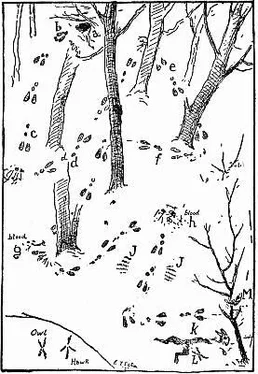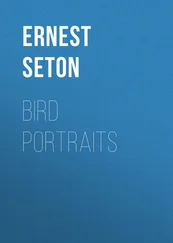Ernest Seton - Woodland Tales
Здесь есть возможность читать онлайн «Ernest Seton - Woodland Tales» весь текст электронной книги совершенно бесплатно (целиком полную версию без сокращений). В некоторых случаях можно слушать аудио, скачать через торрент в формате fb2 и присутствует краткое содержание. Год выпуска: 2007, Жанр: Природа и животные, Сказка, на английском языке. Описание произведения, (предисловие) а так же отзывы посетителей доступны на портале библиотеки ЛибКат.
- Название:Woodland Tales
- Автор:
- Жанр:
- Год:2007
- ISBN:нет данных
- Рейтинг книги:4 / 5. Голосов: 1
-
Избранное:Добавить в избранное
- Отзывы:
-
Ваша оценка:
- 80
- 1
- 2
- 3
- 4
- 5
Woodland Tales: краткое содержание, описание и аннотация
Предлагаем к чтению аннотацию, описание, краткое содержание или предисловие (зависит от того, что написал сам автор книги «Woodland Tales»). Если вы не нашли необходимую информацию о книге — напишите в комментариях, мы постараемся отыскать её.
Woodland Tales — читать онлайн бесплатно полную книгу (весь текст) целиком
Ниже представлен текст книги, разбитый по страницам. Система сохранения места последней прочитанной страницы, позволяет с удобством читать онлайн бесплатно книгу «Woodland Tales», без необходимости каждый раз заново искать на чём Вы остановились. Поставьте закладку, и сможете в любой момент перейти на страницу, на которой закончили чтение.
Интервал:
Закладка:
Then came a soft, sweet voice, more gentle than the mating turtle of Miami. It was in the air, but it was nowhere, and yet it was in the trees, in the water, and it was in Nana-bo-jou too. He felt it, and it awoke him. He sat up and looked about. His white blanket was gone; only a few tatters of it were to be seen in the shady places. In the sunny spots the shreds of the fringe with its beads had taken root and were growing into little flowers with beady eyes, Spring Beauties as they are called now. The small voice kept crying: "Awake! the spring is coming!"
Nana-bo-jou said: "Little voice, where are you? Come here."
But the little voice, being everywhere, was nowhere, and could not come at the hero's call.
So he said: "Little voice, you are nowhere because you have no place to live in; I will make you a home."
So Nana-bo-jou took a curl of birch bark and made a little wigwam, and because the voice came from the skies he painted the wigwam with blue mud, and to show that it came from the Sunland he painted a red sun on it. On the floor he spread a scrap of his own white blanket, then for a fire he breathed into it a spark of life, and said: "Here, little voice, is your wigwam." The little voice entered and took possession, but Nana-bo-jou had breathed the spark of life into it. The smoke-vent wings began to move and to flap, and the little wigwam turned into a beautiful Bluebird with a red sun on its breast and a shirt of white. Away it flew, but every year it comes as winter wanes, the Bluebird of the spring. The voice still dwells in it, and we feel that it has lost nothing of its earliest power when we hear it cry: "Awake! the spring is coming!"
TALE 6
Robin, the Bird that Loves to Make Clay Pots
Everyone knows the Robin; his reddish-brown breast, gray back, white throat, and dark wings and tail are easily remembered. If you colour the drawing, you will always remember it afterward. The Robin comes about our houses and lawns; it lets us get close enough to see it. It has a loud, sweet song. All birds have a song[A]; and all sing when they are happy. As they sing most of the time, except when they are asleep, or when moulting, they must have a lot of happiness in their lives.
Here are some things to remember about the Robin. It is one of the earliest of all our birds to get up in the morning, and it begins to sing long before there is daylight.
Birds that live in the trees, hop; birds that live on the ground, walk or run; but the Robin lives partly in the trees and partly on the ground, so sometimes he hops and sometimes he runs.

The Robin Making Clay Pots
When he alights on a fence or tree, he looks at you and flashes the white spots on the outer corners of his tail. Again and again he does this. Why? That is his way of letting you know that he is a Robin. He is saying in signal code—flash and wig-wag—"I'm a Robin, I'm a Robin, I'm a Robin." So you will not mistake him for some bird that is less loved.
The Robin invented pottery before men did; his nest is always a clay pot set in a little pile of straws. Sometime, get a Robin's nest after the bird is done with it; dry it well, put it on the fire very gently; leave it till all the straws are burned away, and then if it does not go to pieces, you will find you have a pretty good earthen pot.
The Robin loves to make these pots. I have known a cock Robin make several which he did not need, just for the fun of making them.
A friend of mine said to me once, "Come, and I will show you the nest of a crazy Robin." We went to the woodshed and there on a beam were six perfectly good Robin nests all in a row; all of them empty.
"There," said my friend. "All of these six were built by a cock Robin in about ten days or two weeks. He seemed to do nothing but sing and build nests. Then after finishing the last one, he disappeared. Wasn't he crazy?"
"No," I said, "not at all. He was not crazy; he was industrious. Let me finish the chapter. The hen Robin was sitting on the eggs, the cock bird had nothing else to do, so he put in the time at the two things he did the best and loved the most: singing and nest-building. Then after the young were hatched in the home nest, he had plenty to do caring for them, so he ceased both building and singing, for that season."
I have often heard of such things. Indeed, they are rather common, but not often noticed, because the Robin does not often build all the extra nests in one place.
Do you know the lovely shade called Robin's-egg blue? The next time you see a Robin's nest with eggs in it you will understand why it was so named and feel for a moment, when first you see it, that you have found a casket full of most exquisite jewels.
Next to nest-building, singing is the Robin's gift, and the songs that he sings are full of joy. He says, " cheerup, cheer up, cheerily cheer-up "; and he means it too.
FOOTNOTE:
[A] Some, like the Turkey-buzzards, have not yet been heard to sing, but I believe they do.
TALE 7
Brook Brownie, or How the Song Sparrow Got His Streaks
His Mother was the Brook and his sisters were the Reeds,
They, every one, applauded when he sang about his deeds.
His vest was white, his mantle brown, as clear as they could be,
And his songs were fairly bubbling o'er with melody and glee.
But an envious Neighbour splashed with mud our Brownie's coat and vest,
And then a final handful threw that stuck upon his breast.
The Brook-bird's mother did her best to wash the stains away;
But there they stuck, and, as it seems, are very like to stay.
And so he wears the splashes and the mud blotch, as you see;
But his songs are bubbling over still with melody and glee.

Brook Brownie
TALE 8
Diablo and the Dogwood

What a glorious thing is the Maytime Dogwood in our woods! How it does sing out its song! More loudly and clearly it sings than any other spring flower! For it is not one, but a great chorus; and I know it is singing that "The spring, the very spring is in the land!"
I suppose if one had King Solomon's fayland ears, one might hear the Dogwood music like a lot of church bells pealing, like the chorus of the cathedral where Woodthrush is the preacher-priest and the Veeries make responses.
It was Adam's favourite tree, they say, in the Garden of Eden. And it grew so high, flowered so wonderfully, and gave so much pleasure that Diablo, who is also called the Devil, wanted to kill it. He made up his mind that he would blight and scatter every shining leaf of its snowy bloom. So one dark night he climbed a Honey Locust tree near the gate, and swung by his tail over the wall, intending to tear off all the lovely blossoms. But he got a shock when he found that every flower was in the shape of a cross , which put them beyond his power to blight. He was furious at not being able to destroy its beauty, so did the worst he could. Keeping away from the cross he bit a piece out of the edge of every snowy flower leaf, and then jumped back to the Honey Locust tree.
Читать дальшеИнтервал:
Закладка:
Похожие книги на «Woodland Tales»
Представляем Вашему вниманию похожие книги на «Woodland Tales» списком для выбора. Мы отобрали схожую по названию и смыслу литературу в надежде предоставить читателям больше вариантов отыскать новые, интересные, ещё непрочитанные произведения.
Обсуждение, отзывы о книге «Woodland Tales» и просто собственные мнения читателей. Оставьте ваши комментарии, напишите, что Вы думаете о произведении, его смысле или главных героях. Укажите что конкретно понравилось, а что нет, и почему Вы так считаете.




